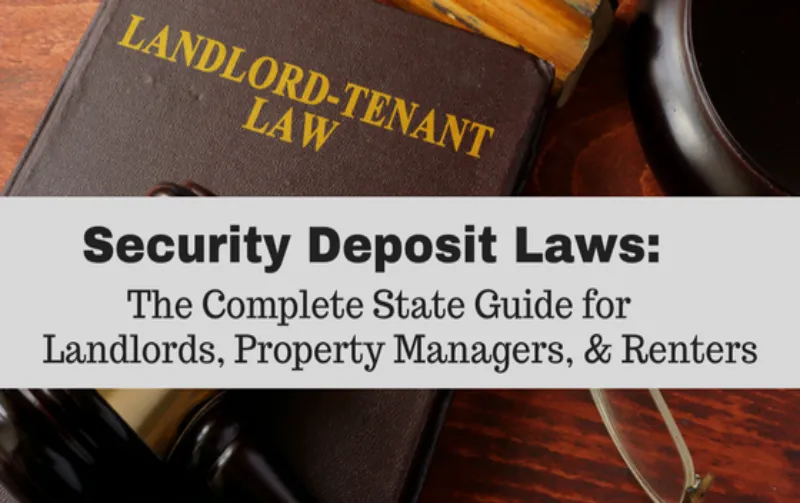Can a landlord ask for social security number – The question of whether a landlord can ask for your Social Security number is a common one, and it’s a valid concern. After all, your Social Security number is a crucial piece of personal information that should be protected. As we delve into this topic, we’ll explore the legal considerations, tenant screening practices, privacy concerns, and alternative verification methods. By understanding these aspects, we can gain a comprehensive perspective on the rights and responsibilities involved in renting a property.
The Fair Housing Act, a federal law, plays a significant role in this discussion. It prohibits landlords from discriminating against potential tenants based on certain protected characteristics. While the Fair Housing Act doesn’t explicitly address the use of Social Security numbers, it does emphasize the importance of fair and non-discriminatory screening practices. Landlords are generally allowed to request your Social Security number for tenant screening purposes, but they must have a legitimate reason for doing so.
This reason should be related to verifying your identity, creditworthiness, or rental history. It’s crucial to remember that your Social Security number should be treated with utmost care, and you have the right to understand why a landlord needs this information.
Legal Considerations

Landlords in the United States are generally allowed to request a tenant’s Social Security number for screening purposes, but there are specific legal considerations and limitations to keep in mind. Understanding these regulations is crucial for both landlords and tenants to ensure fairness and compliance.
Fair Housing Act and Social Security Numbers
The Fair Housing Act (FHA) prohibits landlords from discriminating against potential tenants based on race, color, religion, national origin, sex, familial status, or disability. While the FHA doesn’t directly address the collection of Social Security numbers, it plays a role in ensuring that the information is used fairly and without discriminatory intent. Landlords must ensure that their requests for Social Security numbers are not used as a pretext for discriminatory practices.
Legality of Requesting a Social Security Number
Landlords can legally request a tenant’s Social Security number for several reasons, including:
- Background Checks: Landlords often use Social Security numbers to conduct background checks, including criminal history, credit reports, and eviction records. These checks help landlords assess a tenant’s reliability and suitability for the property.
- Tenant Identification: A Social Security number can help landlords verify a tenant’s identity and prevent fraudulent applications.
- Reporting Requirements: Some states require landlords to report tenant information, including Social Security numbers, to government agencies for tax or other purposes.
Acceptable and Unacceptable Reasons for Requesting a Social Security Number, Can a landlord ask for social security number
- Acceptable Reasons:
- Conducting a background check to verify a tenant’s identity and suitability for the property.
- Complying with state or local reporting requirements.
- Unacceptable Reasons:
- Discriminating against a tenant based on their race, religion, or other protected characteristics.
- Using the information for purposes unrelated to tenant screening or property management.
State-Specific Laws
State laws regarding landlord access to Social Security numbers can vary. Some states have specific regulations regarding the collection and use of this information, while others have more general privacy laws that apply. For example, some states require landlords to provide tenants with a written notice explaining why they need the Social Security number and how it will be used.
It is essential for landlords and tenants to be aware of the specific laws in their state to ensure compliance.
Tenant Screening and Background Checks: Can A Landlord Ask For Social Security Number

Landlords conduct tenant screening to assess potential tenants’ suitability and minimize the risk of financial loss or property damage. This process involves gathering information about the tenant’s financial stability, rental history, and criminal background. Social security numbers play a crucial role in tenant screening, as they are used to verify identity and access credit reports and background checks.
The Role of Social Security Numbers in Tenant Screening
Landlords often request social security numbers to conduct comprehensive background checks and ensure the tenant’s identity is accurate. The social security number serves as a unique identifier, allowing landlords to access databases and verify information like credit history, criminal records, and rental history. This information helps landlords make informed decisions about tenant selection.
Types of Background Checks
Landlords may conduct various background checks, including:
- Credit Checks: Assess the tenant’s creditworthiness, revealing their payment history and debt levels. These checks are vital to gauge the tenant’s ability to pay rent on time.
- Criminal Background Checks: Reveal any criminal convictions or pending charges. This information helps landlords evaluate the tenant’s potential for causing harm or disrupting the property.
- Eviction History Checks: Uncover past instances of evictions or landlord-tenant disputes. This provides insights into the tenant’s previous rental behavior and their potential for causing problems in the future.
- Employment Verification: Confirms the tenant’s employment status and income level, ensuring they can afford the rent.
Social Security Numbers vs. Other Screening Methods
Social security numbers are often used for tenant screening, but other methods like credit checks and reference checks can also be employed. While social security numbers provide a comprehensive picture of a tenant’s background, they can raise privacy concerns. Credit checks, on the other hand, focus solely on financial history and can be accessed using alternative identifiers like the tenant’s name and address.
Benefits and Drawbacks of Using Social Security Numbers
| Benefits | Drawbacks |
|---|---|
| Provides a comprehensive overview of a tenant’s background | Raises privacy concerns, as it allows access to sensitive personal information |
| Helps landlords make informed decisions about tenant selection | May lead to discrimination against individuals with past credit issues or criminal records |
| Reduces the risk of financial loss and property damage | Can be misused by landlords for unauthorized purposes |
Privacy Concerns and Data Security
Providing your social security number to a landlord can raise serious privacy concerns, especially in today’s digital age. Sharing such sensitive information can expose you to potential risks, making it crucial to understand the implications and take necessary precautions.
Identity Theft and Fraud
Identity theft is a significant threat when social security numbers are shared. If a landlord’s systems are compromised, your information could be stolen and used for fraudulent purposes, such as opening credit cards, taking out loans, or accessing your bank accounts. The consequences of identity theft can be severe and time-consuming to rectify.
Data Security Measures
Landlords have a responsibility to protect tenant information, including social security numbers. Implementing robust data security measures is essential to minimize the risk of breaches and safeguard privacy.
Landlords should implement encryption protocols for storing and transmitting tenant data, use strong passwords and access controls, and regularly update security software to protect against vulnerabilities.
Best Practices for Landlords
Landlords should follow best practices to ensure responsible handling of social security numbers:
- Minimize Collection: Landlords should only collect social security numbers when absolutely necessary, such as for background checks or credit reports. Avoid collecting it for other purposes, such as tenant communication or property management.
- Secure Storage: Social security numbers should be stored in secure, encrypted databases, physically protected from unauthorized access. Consider using a dedicated server or cloud storage provider with robust security features.
- Limited Access: Only authorized personnel should have access to tenant social security numbers. Implement access controls and user authentication to restrict access to sensitive information.
- Data Disposal: When tenant information is no longer needed, it should be securely disposed of. This includes shredding paper documents and deleting electronic records using secure data erasure methods.
- Transparency: Landlords should inform tenants about their data privacy practices, including how their social security numbers are collected, stored, and used. They should also provide clear and concise privacy policies.
Alternative Methods for Tenant Verification
Landlords can utilize various methods to verify tenant information without relying solely on social security numbers. These alternative methods offer a balance between thorough screening and respecting tenant privacy.
Alternative Forms of Identification
Landlords can request alternative forms of identification that provide essential information for tenant verification. These alternatives can include:
- Driver’s License: A widely accepted form of identification, driver’s licenses contain name, address, and sometimes date of birth, offering a reliable source of verification.
- Passport: Passports provide a globally recognized identification with a photograph, name, and date of birth, offering strong verification for international tenants.
- State-Issued ID Card: Some states issue identification cards for residents who do not drive. These cards provide similar information to driver’s licenses, offering an alternative for non-drivers.
- Military ID: Military IDs provide identification for active-duty personnel, containing name, rank, and service branch, offering a reliable verification method for military tenants.
Alternative Verification Methods
Landlords can employ alternative verification methods to assess tenant reliability and financial stability:
- Credit Reports: Credit reports provide a comprehensive financial history, including payment history, credit utilization, and inquiries, offering insights into a tenant’s financial responsibility.
- Bank Statements: Bank statements can demonstrate a tenant’s income and financial stability, verifying their ability to afford rent payments.
- Employment Verification: Contacting a tenant’s employer to confirm employment status and income provides a direct verification of their financial capacity.
- Rental History: Requesting references from previous landlords can provide insights into a tenant’s past rental behavior, including payment history and overall tenancy experience.
- Reference Checks: Contacting personal references provided by the tenant can offer insights into their character and reliability, providing a broader perspective on their suitability as tenants.
Comparison of Verification Methods
| Verification Method | Effectiveness | Reliability | Privacy Concerns |
|---|---|---|---|
| Social Security Number | High | High | High |
| Driver’s License | Moderate | Moderate | Moderate |
| Passport | High | High | Moderate |
| State-Issued ID Card | Moderate | Moderate | Moderate |
| Military ID | High | High | Moderate |
| Credit Report | High | High | Moderate |
| Bank Statements | Moderate | Moderate | High |
| Employment Verification | High | High | Moderate |
| Rental History | High | High | Moderate |
| Reference Checks | Moderate | Moderate | Moderate |
Tenant Rights and Responsibilities

In the realm of renting, it’s crucial to understand your rights and responsibilities as a tenant, especially when it comes to your social security number. While landlords may request this information for background checks, they are bound by specific regulations and tenant privacy laws.
Tenant Rights Regarding Social Security Numbers
Tenants have the right to privacy and protection of their personal information, including their social security numbers. Landlords cannot demand this information without a legitimate purpose and must adhere to specific legal guidelines.
- Landlords must have a valid reason for requesting your social security number. This typically involves conducting background checks for credit history, criminal records, and rental history to assess your suitability as a tenant. However, they cannot simply ask for it without a legitimate reason.
- You have the right to know why your social security number is being requested. Landlords should provide clear and concise explanations regarding the purpose of the request and how your information will be used.
- You have the right to refuse to provide your social security number if you believe the landlord’s request is inappropriate or unreasonable. While a landlord may refuse to rent to you if you don’t provide your social security number, they must be prepared to justify their decision and ensure it’s not based on discrimination or other illegal practices.
Potential Consequences for Landlords Violating Tenant Privacy Laws
Landlords who violate tenant privacy laws by improperly collecting, using, or disclosing social security numbers can face severe consequences.
- Fines and penalties: Depending on the jurisdiction, landlords may face significant fines and penalties for violating privacy laws.
- Legal action: Tenants can take legal action against landlords who misuse their social security numbers, potentially seeking compensation for damages and violations of their privacy.
- Reputational damage: Landlords who violate tenant privacy laws may suffer reputational damage, impacting their ability to attract and retain tenants in the future.
Protecting Your Privacy and Ensuring Secure Handling of Your Social Security Number
As a tenant, you have a right to protect your privacy and ensure your social security number is handled securely.
- Be cautious about providing your social security number. Only provide it when necessary and after understanding the purpose and how your information will be used.
- Ask for a written explanation of how your social security number will be used. This documentation can help protect your rights and provide evidence in case of any future disputes.
- Consider providing an alternative form of identification, such as a driver’s license or passport, if possible. This can reduce the risk of your social security number being misused.
- Review your credit report regularly. This helps you identify any unauthorized access or misuse of your social security number.
Resources and Organizations for Tenant Assistance
If you have concerns about a landlord’s request for your social security number or believe your privacy has been violated, several resources can provide guidance and support.
- Local tenant advocacy groups: Many communities have tenant advocacy groups that offer legal advice and assistance to tenants facing issues with landlords.
- Fair Housing organizations: Fair Housing organizations can provide information and support regarding tenant rights and discrimination.
- State and local government agencies: State and local government agencies may have departments dedicated to protecting tenant rights and enforcing privacy laws.
- Legal aid organizations: Legal aid organizations can provide free or low-cost legal assistance to tenants facing legal issues with landlords.
In conclusion, understanding the legal framework surrounding a landlord’s request for your Social Security number is essential for both tenants and landlords. While landlords may need this information for legitimate screening purposes, it’s crucial to prioritize data security and privacy. By being aware of your rights, utilizing alternative verification methods when possible, and advocating for responsible data handling, we can navigate the rental process with greater clarity and protect our personal information.
Remember, you have the right to ask questions, understand the purpose of any requests for your Social Security number, and ensure your information is handled with care.
FAQ Guide
What happens if a landlord asks for my Social Security number but doesn’t explain why?
You have the right to ask the landlord why they need your Social Security number and what they’ll use it for. If they can’t provide a clear and legitimate reason, you can politely decline to provide it.
Can a landlord run a credit check without my permission?
Generally, a landlord can run a credit check if they have a legitimate reason, such as verifying your ability to pay rent. However, they must obtain your written permission before doing so.
What if I’m concerned about the security of my Social Security number with a landlord?
You can ask the landlord about their data security practices and what measures they take to protect tenant information. Consider using a secure method for sharing your Social Security number, such as a secure online portal or encrypted email.





